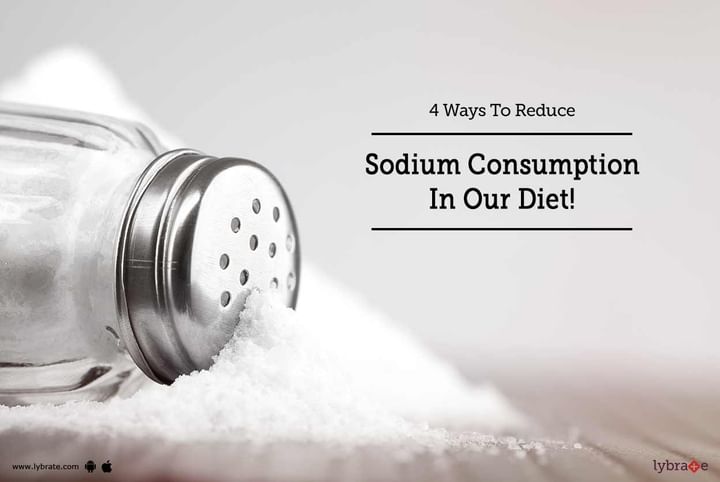4 Ways To Reduce Sodium Consumption In Our Diet!
How to reduce sodium consumption through diet
Minerals and salts are important parts of our daily diets. These minerals play significant roles in the functioning of the human body but, if found in excess, they might adversely impact your health. One such mineral is sodium, which is abundant in most food sources.
Sodium is present in every food in the form of salt. Most forms of meat, canned vegetables and soup, junk food and pickles are some examples of food which are naturally high in sodium. Apart from this, any cooked food will have salt crystals within it. Medical research has shown that most people consume more sodium than what is recommended.
Ill-Effects of Sodium Intake in Excess
- The most common problem caused by the excessive consumption of sodium is high blood pressure.
- High blood pressure, apart from being the cause of strokes can also affect internal organs like kidneys and cause renal failure over time.
- It can also be detrimental to the heart and be a contributing factor to heart conditions as well.
Here are some of the ways through which you can reduce sodium intake through changes in diet.
- Increasing the intake of fruits within the diet - Inclusion of more fresh fruits in your diet will reduce the amount of sodium consumption. Canned and processed fruits may increase sodium consumption and hence should be reduced.
- Changing to fresh unprocessed meats - Certain processed and packaged meats such as in snacks and fast foods should be avoided as they have high sodium content. Hence, consumption of fresh meat instead of processed meat is an effective way to reduce your daily sodium intake. If a food item keeps well in the fridge for days or weeks, that's a tip off that the sodium content is too high.
- Including more leafy vegetables in your diet - Leafy green vegetables such as kale, spinach, and celery have a lot of water and also help reduce the sodium intake in your body.
- Drinking plenty of water - Sodium levels can rise within the body when it is dehydrated. Thus, it is prudent to always keep your body hydrated by drinking plenty of water.
- Check food labels - Begin reading food labels as a matter of course. Sodium content is always listed on the label. Sometimes the high sugar content in a product like apple pie can mask the high sodium content so it's important to check every label for sodium content.
- Add spices - Add spices to your food. Instead of salt, try coriander, black pepper, nutmeg, parsley, cumin, cilantro, ginger, rosemary, marjoram, thyme, tarragon, garlic or onion powder, bay leaf, oregano, dry mustard, or dill. Consult an Expert & get answers to your questions!



+1.svg)
